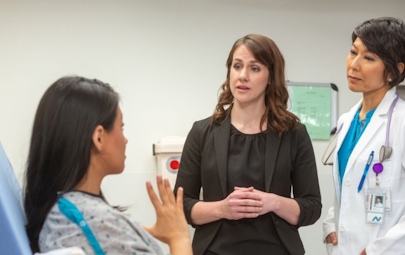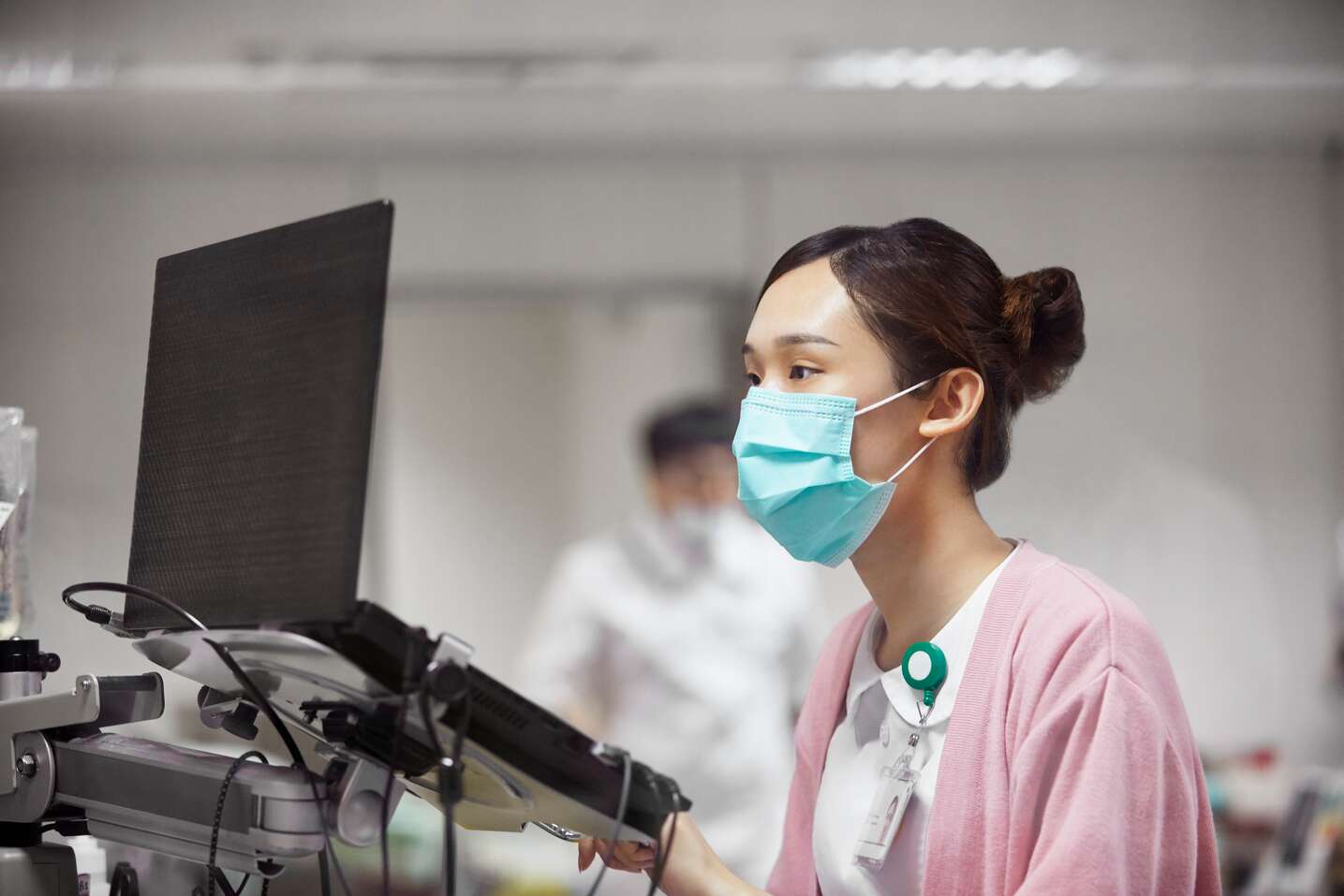
National Certification for Medical Interpreters
Medical interpreters play an integral role in healthcare delivery, facilitating communication between patients who do not speak English or are deaf or hard of hearing with physicians, nurses and other professionals delivering care.
“When you're talking about a professional interpreter, you're talking [about] not just somebody who knows the language,” said Elena M., a certified medical interpreter (CMI) Spanish, language operations manager for AMN Healthcare Language Services, during an AMN live show “That is the first step. You have to be bilingual in two languages. However, that is not enough.”
Professional medical interpreters translate clinical conversations, taking into consideration cultural aspects or slang the patient might use. AMN Healthcare Language Services allows clinicians to accurately address patients’ concerns and convey a plan of care.
Often patients bring a friend or family member to interpret. They may even place children in the difficult situation of interpreting medical information and trying to communicate with the clinician.
However, a professional medical interpreter has received training and experience in a healthcare setting, putting into practice what has been learned in classes.
The need for professional healthcare interpreters
Interpreting services remain in great demand. In 20 percent of homes in the United States, people speak a language other than English. And those people seek medical care, just as English speakers do.
“The need for professional interpreters is growing,” said Damian E., certified healthcare interpreter (CHI) Spanish, language operations supervisor for AMN Healthcare Language Services, during AMN’s recent show. “These are vital services that are needed throughout the different hospitals that we serve and we're happy to do that.”
Damian transitioned from another career to language services. Recognizing the need to learn about language interpretation, he took a 40-hour class and completed a residency program at a local hospital. Soon after, he tested to become a certified healthcare interpreter. The hospital where he completed the residency program hired him.
“That worked out for me,” Damian said. “Once you have those credentials behind your name, it does open up doors. … That’s one of the primary reasons why I advocate for being certified.”
The certification process for medical interpreters
There are two certifying bodies that offer the national medical interpreter certifications. One is Certification Commission for Healthcare Interpreters (CCHI) and the other is The National Board of Certification for Medical Interpreters (NBCMI). They each offer their distinct credentials after passing their written and oral assessments. CCHI has bilingual oral assessments in Arabic, Mandarin, and Spanish. For all other languages not mentioned they offer a monolingual oral assessment and a separate credential for passing their written assessment. NBCMI offers a bilingual oral assessment in Spanish, Korean, Mandarin, Russian, Cantonese, and Vietnamese. For all the other languages not mentioned they offer a credential after passing their written assessment.
“In essence, it's a certificate that says you know what you're doing as a professional interpreter,” Elena said. “To start, you would have to meet the qualifications of being bilingual, proven fluency in two languages, in the language of English, and then the language that you're going to be testing in.”
Requirements include completing at a minimum a 40-hour interpreter course. However, longer interpreter programs exist, including a bachelor’s or master’s degree in medical interpretation. The certifying bodies require fees and passing written and oral proficiency exams. The written test includes questions about protocols, ethics, and the standards of practice, Elena said.

The process for becoming a certified medical interpreter can take anywhere from six to 18 months. Interpreters can take an online 40-hour interpreter course at their own pace or take a live course. Completing the live interpreter program might take six months or more.
The advantages of certification for healthcare interpreters
AMN Healthcare Language Services does not require its interpreters to be medically certified, but certification does offer an advantage, said Kristen B, talent acquisition manager at AMN Healthcare Language Services. The company also offers an online interpreter training program.
“You can propel your career in a whole different direction in six months to a year, it's really pretty amazing,” Kristen said. “And, we have ways we can help you.”
Working with AMN Healthcare Language Services
AMN Healthcare Language Services employs more than 3,000 medically qualified interpreters. The company offers more than 40 languages via video interpretation and more than 200 via audio interpretation, bridging the language gap to ensure quality care in hospitals and clinics around the United States. The services also include American Sign Language.
- Watch the AMN Live show to learn more about national certification and working with AMN Language Services, or
- Discover AMN’s current opportunities for medical interpreters



